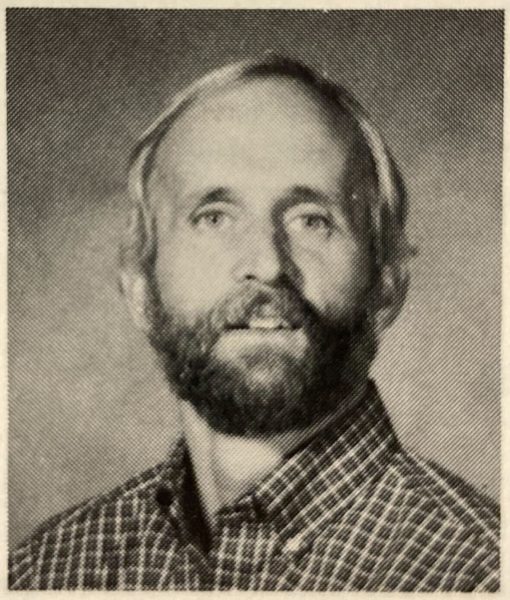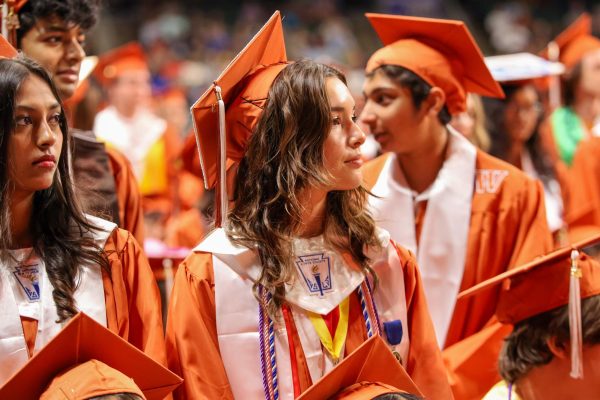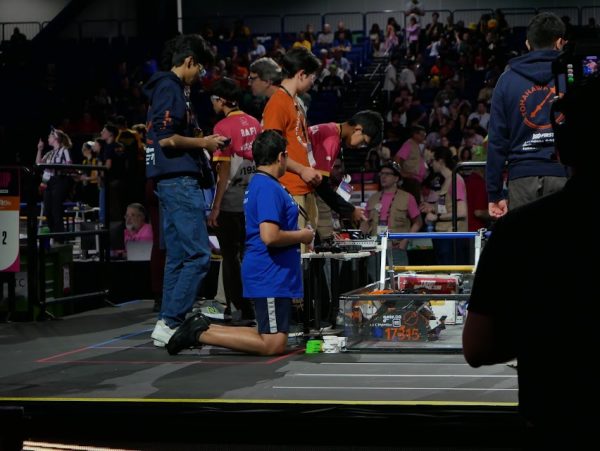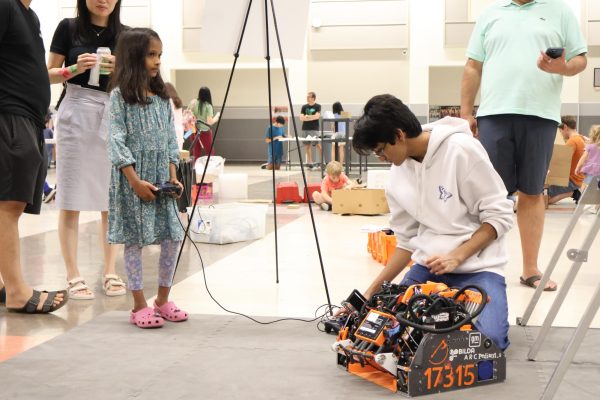Parents Gather for College Admissions Night
Parents and students attended the annual college admissions night held in the cafeteria on Thursday, Oct. 10. Guest speakers from Texas A&M, Rhodes College, and Trinity University spoke to parents about the college admission process and what to expect.
Starting off the evening, the speakers discussed the economic, social, and academic factors that go into deciding which college is right for a student. This included costs, scholarships, loans, degrees, special programs, and location. In addition, they stressed the importance of taking advantage of the college representative visits throughout the school year.
“Don’t go with the name brand,” Lead College Counselor Ms. Holly Browning said. “You don’t need to wear Gucci and Chanel. Find the school that’s right for you, and I think so much here at Westwood we get kinda wrapped up with our peers. There are hundreds of schools listed and you’ve gotta look outside the box. Find a school that likes you for you.”
Later, the advisors and assistants discussed AP, IB, and Dual Credit expectations from their perspective. The most important thing they stressed was that these courses vary with every student. They went in-depth on how students should spend majority of their time and energy among classes that suit and challenge them.
“When it comes to Dual Credit it can be a little tricky,” Trinity University Assistant Director of Admission Ms. Michaela Knipp said. “It’s not just about the credit. It’s about the rigor of the class and being really prepared once you get into college.
Regarding the ACT and SAT, the directors discussed a brief summary of the tests that students should take, and what to expect regarding scores and how colleges look at them. They also went into detail about how they rely more on a student’s overall grade rather than test scores.
“We are not using an application to try to reward a student for what they have already done,” Rhodes College Director of Admissions Ms. Katie Frink said. “We are trying to predict what they will do when they get there. If you’ve been working at your edge in terms of rigorous classes, if you’ve been doing pretty well at taking full advantage of all the opportunities that are at a school like Westwood, that has a lot of really challenging, interesting classes, that have very smart peers to challenge you and to learn with, we’re going to take that context into account.”
The speakers spent a great amount of time talking about the essay portion of applications. They emphasized that the essay is about getting to know the student. From their perspective, the essay added a human aspect to the application, an important addition to the student’s academic statistics. Their advice for writing the essay portion was to write about a passion rather than an achievement.
“I think for me what always sticks out the most is when a student can focus on a specific, single moment,” Ms. Knipp said. “I think it’s really easy to want to tell a big story, but that’s hard to do in just 500 words or less, so typically what I’m looking for is ‘Can I learn something about this student that I can’t see anywhere else in their application?’”
As the event wrapped up, they talked about ways to distinguish oneself by attending campus visits and social events. A genuine interest in the college a student applies for was described as the most important aspect. They emphasized that a student must want to go to a college in order to have a successful education.
“Don’t stress about this process too much,” Ms. Knipp said. “I think it can feel incredibly daunting and a little overwhelming, but it should be fun too. This is kind of that first big decision that you get to make in your adult life that is really up to you, so have fun with it.”
All three guest speakers agreed that a student’s future college experience is about having fun and enjoying the social and academic activities that lie ahead. The colleges all stated that they want what is best for each and every student applying.
“We’re rooting for you,” Ms. Frink said. “We’re trying to look for reasons to admit you because we want people who fit here and are excited about being here. That’s my job: to advocate for students to the best of my ability through this process.”

Hey! I am in the class of ‘22 here at Westwood. Outside the press room you can find me hours deep in a book or playing Minecraft. I am the definition...

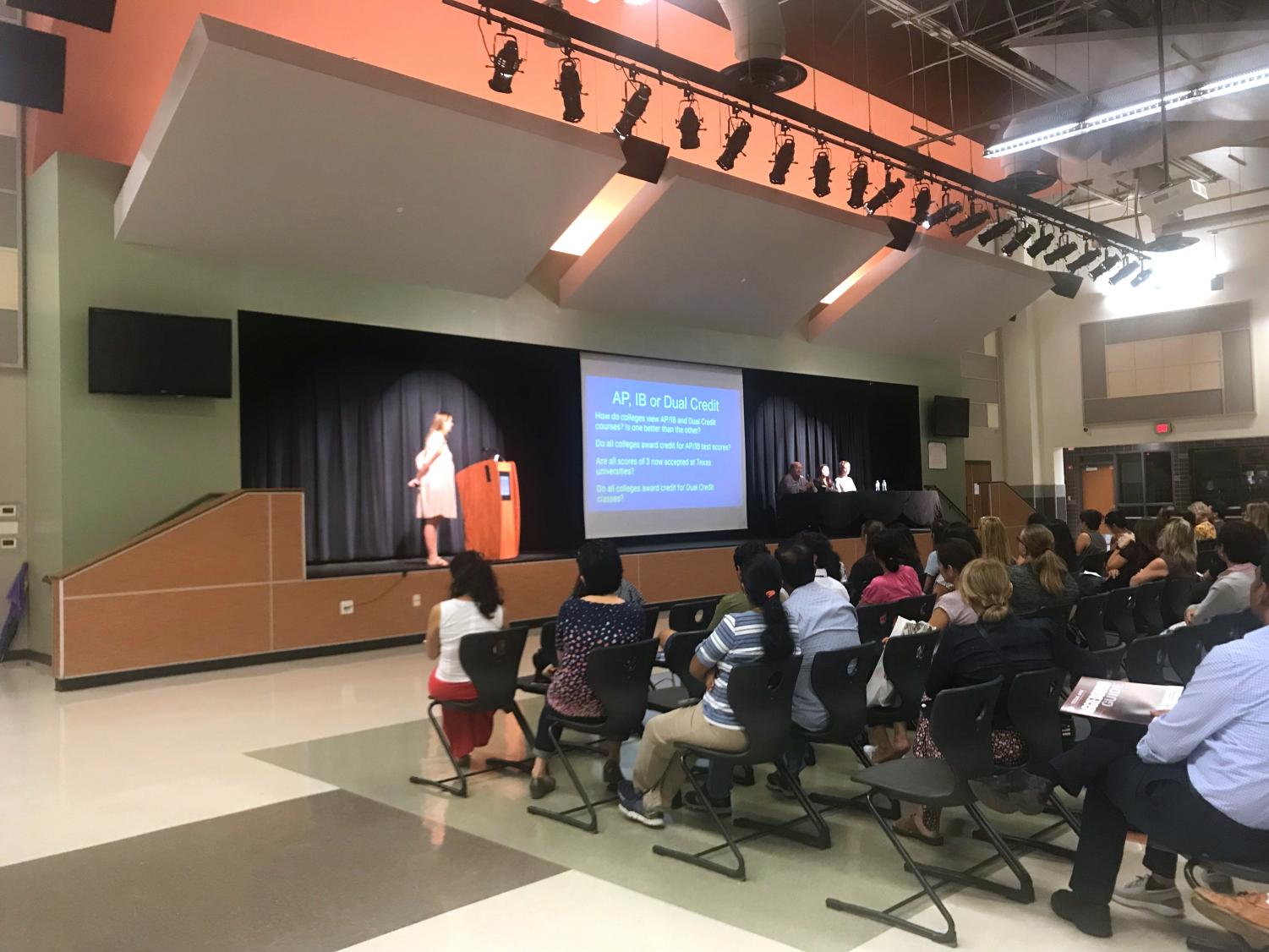
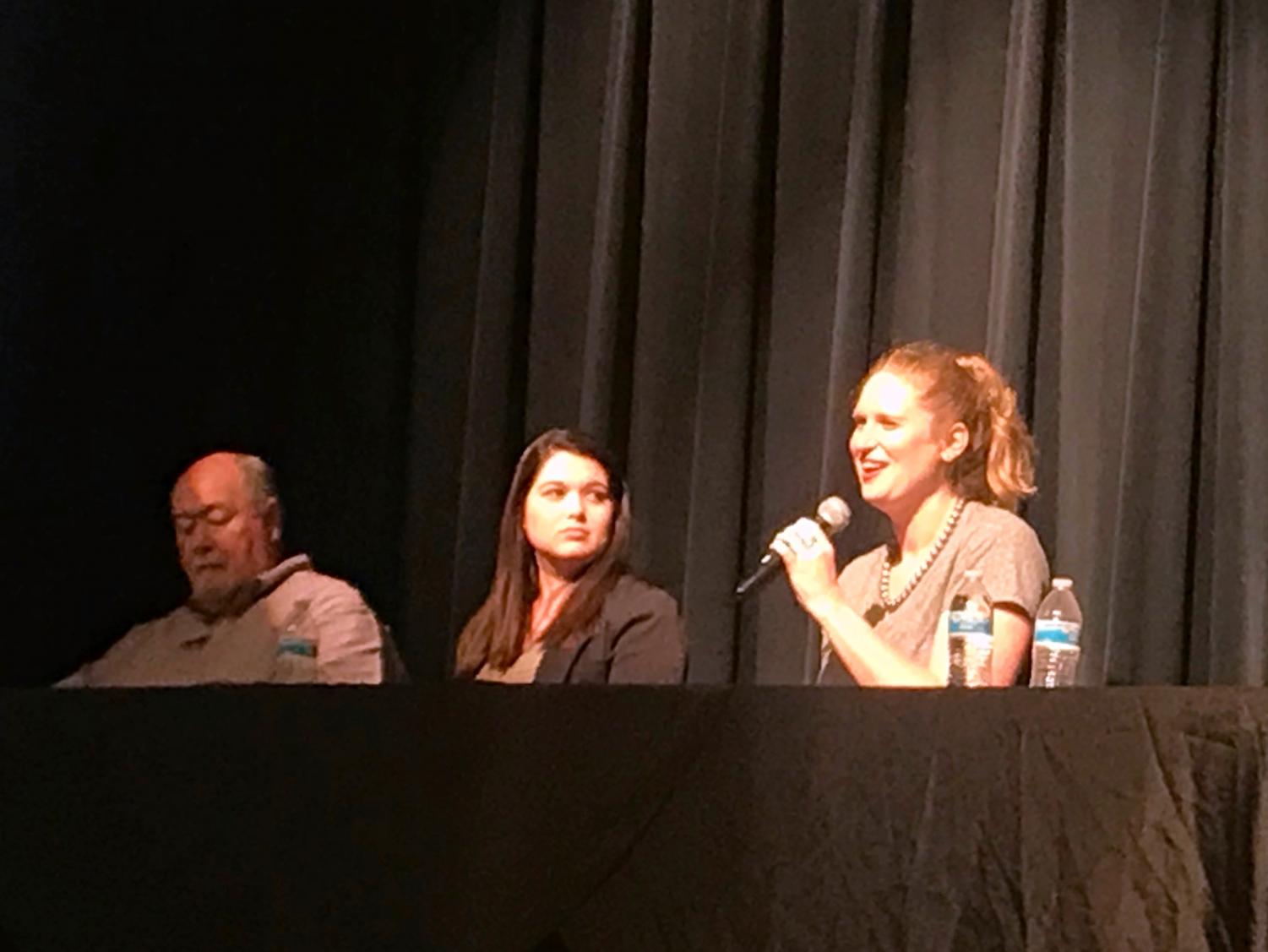
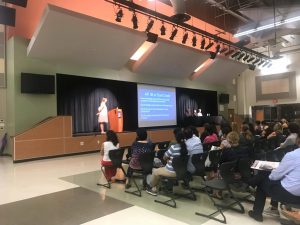
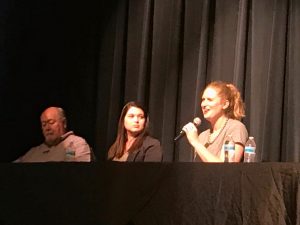
![Westwood students experienced the impacts of class cuts resulting from Round Rock ISD (RRISD)s budget deficit. The recently approved general fund budget could have played a role in returning some of the cut classes. We all hope that [the general fund budget] will bring additional funding and cost savings, potentially help with course and extracurricular operations, and provide deserving teachers with an increase in salary as well as provide better education opportunities for students, Marlene Luo 25 said.](https://westwoodhorizon.com/wp-content/uploads/2024/07/ww-pic-600x479.jpg)
